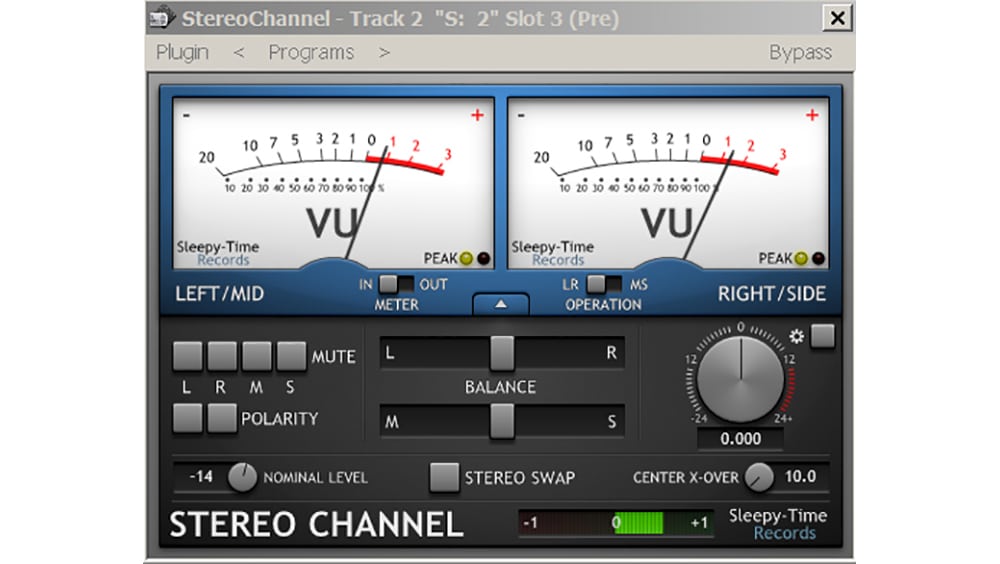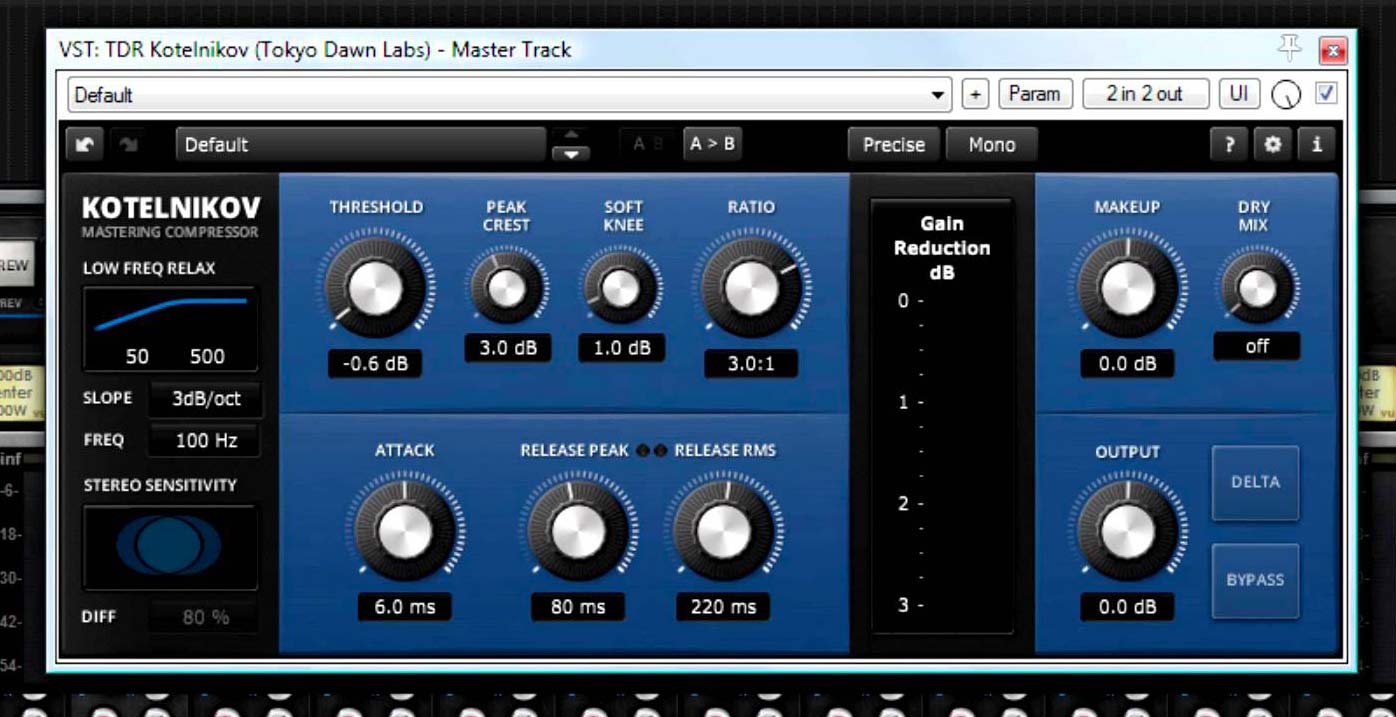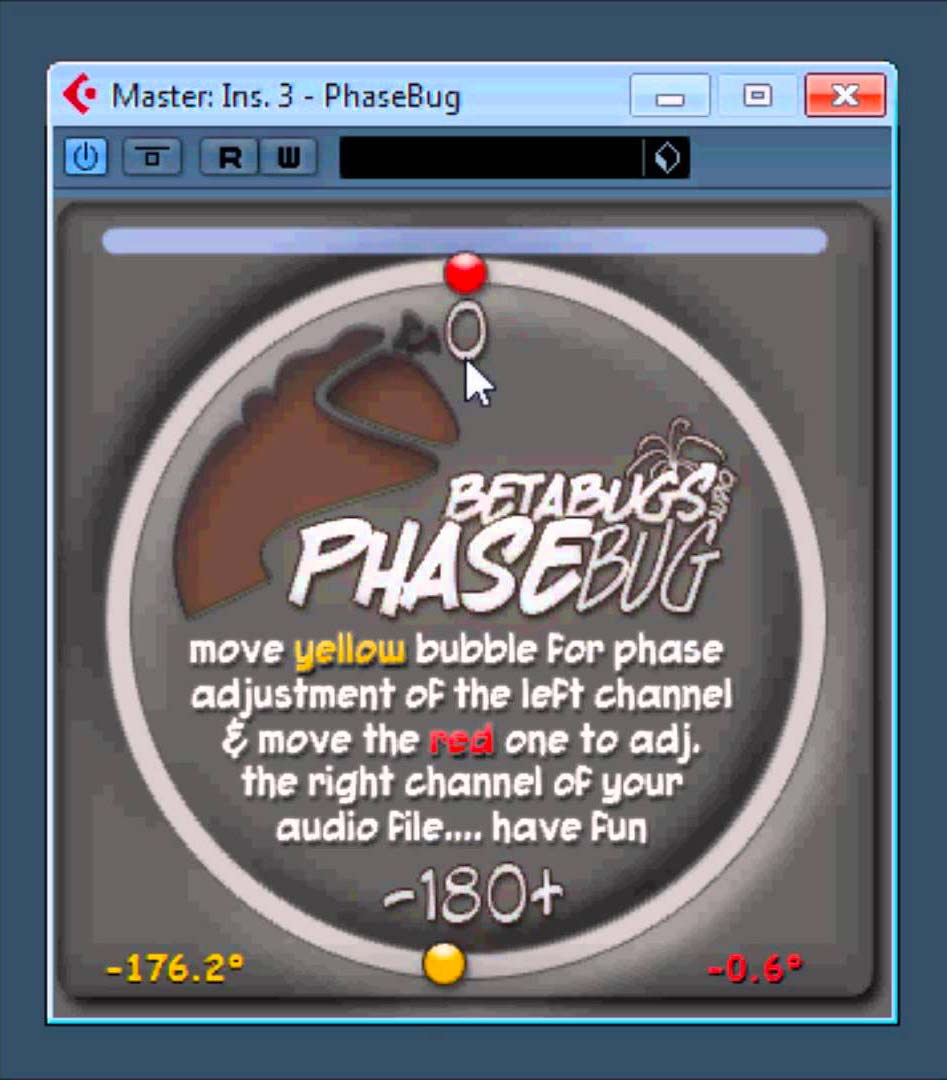Plugins have come a long way, so much so that many people are now working purely ‘in-the-box’. While some of the big name developers are selling plugins for hundreds if not thousands of dollars, there are a tonne of great indie developers releasing plugs for free.
The following is by no means a comprehensive list, just a selection of my personal favourites:
1. SleepyTime DSP StereoChannel
 Learning how to read VU meters is invaluable for mixing and mastering. The way the needles move can tell you things about the mix that other types of meters can’t, yet finding good hardware VU boxes isn’t easy.
Learning how to read VU meters is invaluable for mixing and mastering. The way the needles move can tell you things about the mix that other types of meters can’t, yet finding good hardware VU boxes isn’t easy.
SleepyTime DSP’s StereoChannel is an excellent software alternative with nice big clear meters, and the ability to set a nominal level. It also sports very handy stereo based features
such as M/S and L/R balancing and muting, emulating features found on monitor controllers.
It’s one of those plugins that goes on the master channel of every project.
2. Reaper Free Plugins
I’m a Reaper convert. I love it’s flexibility, open and moddable nature that makes most other DAWs feel needlessly restrictive in comparison. Like every DAW Reaper, it comes with a bunch of built in plugins and they offer those plugins as free VSTs to use in other hosts if you prefer. While they won’t win any graphic design awards, they sound great and offer a lot of utility. You get the standards, a compressor, an EQ, delay, gate and multi-band compressor, but the really interesting pieces in the package are ReaStream, ReaFIR and ReaJS.
ReaStream lets you stream audio over a network. Put ReaStream in send mode as a VST insert on a track (you can also use it in multichannel mode), then on another computer on
your network open your DAW and insert ReaStream in receive mode. Hitting play on the sending computer will stream the audio to the receiving computer. It’s really simple to setup and very useful. Just make sure you know the IP of the receiving computer otherwise you could inadvertently DDOS your network.
At first glance ReaFIR looks like a standard EQ, though it’s anything but. I’ve found it useful to use in “subtract” mode for quick and easy noise reduction. Take a noise print then hold
CTRL and click on the graph to raise or lower the threshold of reduction, and you’ll have a surprisingly good and very light on CPU noise reducer (increasing FFT size will increase accuracy of the noise reduction). This can be great when you are working on multiple channels of audio that need noise reduction as more specialised plugins like Izotope RX can really tax your CPU load. You can also use it as a sound mangler using the compress and gate modes. It’s fun to grab a curve of a sound in the subtract “build noise print” mode, then carry that curve over to compress or EQ mode and essentially force that print onto a different sound. Things can get crazy sounding pretty quickly.
ReaJS is for the aspiring DSP programmers out there. You can use it to make or modify your own plugins in JavaScript. There’s a community of people out there making and sharing their own JS plugins, thus installing ReaJS opens up a whole world of more free plugs:
http://stash.reaper.fm/tag/JS-Effects
3. TDR Kotelnikov and SlickEQ

Tokyo Dawn Records is a record label with the unique distinction of also creating and distributing plugins, a lot of them free. They have a raft of amazing stuff, like the collaboration with Variety of Sound that resulted in the most excellent SlickEQ (http://www.tokyodawn.net/tdr-vos- slickeq/). My favourite is their buss compressor Kotelnikov which comes in both free and paid (albeit still cheap) versions. The free version is not as gimped as you might expect, and is preferable in some cases due to it stripping out a lot of the advanced features that you probably won’t need a lot of the time.
It works by using two thresholds and two releases, one for the peak and one for the RMS of the signal which results in an extremely clean and transparent sound. Kotelnikov works great as a master buss compressor due to the way it handles complex material.
4. Phase Bug

Every DAW comes with an invert phase button, however you are usually limited to two choices, 0 or 180. Phase Bug by BetaBugs is a free plugin that lets you change the phase
on a piece of audio by degrees. It’s a simple concept, you have a wheel and you spin it. The mono version of the plugin is useful to use on things that have multiple sources as you can dial in a tone you like very quickly. For instance, when you have Bass Mic and Bass Di tracks: put Phase Bug on one of the tracks and spin the wheel around to listen to the tone
change as you go.
5. Variety of Sound Density mkIII

Variety of Sound offers a whole suit of awesome plugins, all for free. One I use fairly often is Density mkIII, a very nice buss compressor with an apt name. While it works pretty well on the master buss I like it on instrument sub-groups such as guitars to even out the level and add a bit of saturation with the colour knob. So there you have it, five of my favourite free plugins. There are many more great ones out there by the developers I’ve mentioned and ones I haven’t. If you like any of these I would highly recommend digging a little deeper as there is a whole community of passionate indie developers releasing great plugs for little to no cost.
Leave a Reply